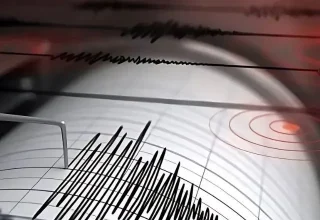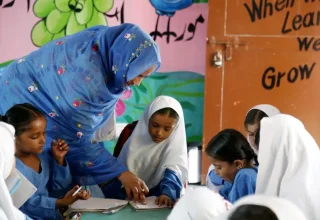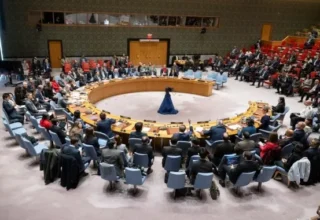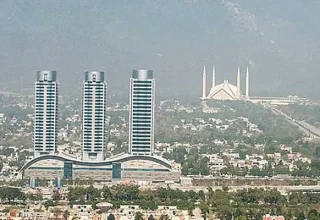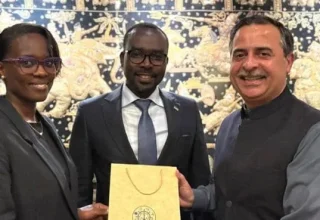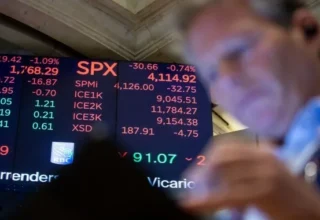
Stocks were surging for the second consecutive day as the benchmark KSE-100 Index climbed over 1.32 per cent during early trading on Thursday, meaning that the market may end the year on a high note after two weeks of massive losses.
At 9:54am, the KSE-100 was recorded at 61,669.20 after a gain of 805.58 points, or 1.32 per cent, against the previous closing of 60,863.62.
The latest trend means the market has shrugged off the fears related to political instability, at least temporarily, amid the looming general elections which will produce a new elected government whose policies are going to decide the future of Pakistan.
Elsewhere, Asian shares touched five-month highs on Thursday as market wagers on ever-more aggressive rate cuts extended a huge rally in US stocks and bonds, but also left plenty of scope for disappointment next year.
The S&P 500 has climbed 14pc in just two months to within a whisker of its all-time closing peak, while its price to earnings ratio is up by a quarter on the year at 24.0.
MSCI’s broadest index of Asia-Pacific shares outside Japan has also gained 10pc in two months and added another 0.3pc on Thursday to its highest since August.
Japan’s Nikkei was off 0.4pc as a rebound in the yen has kept its gains for December to a minimum.
A lack of major news has not stopped investors from ramping up bets on rapid-fire rate cuts from the Federal Reserve. Futures now imply an 88pc chance of a rate cut as early as March, a huge swing from a month ago when the probability was just 21pc.
The market has about 157 basis points of easing priced in for 2024, and sees rates reaching 3.00-3.25pc over 2025.
“The rapid decline in inflation is likely to lead the Fed to cut early and fast to reset the policy rate from a level that most participants will likely soon see as far offside,” wrote analysts at Goldman Sachs in a note.
On Wednesday, the Pakistan Stock Exchange recovered some of the ground lost during the past two weeks with a 2.86pc surge, thus halting and reversing the slide which had started affecting the market on December 13.
The decline in the previous sessions was a product of multiple factors, including market correction after a record-shattering surge, market correction, year-end consolidation and political uncertainty before the Feb elections.
One of the main reasons dampening the market sentiments was that the privatisation process as demanded by the IMF won’t go ahead till the elections and any progress on the subject depends upon the next elected government’s priorities.
Meanwhile, the market had steadied after crossing 66,000 on December 8 as official data revealed alarming sustained rise in inflation. It was followed the nosedive starting just a day after the State Bank of Pakistan (SBP) decided to interest rates at 22 per cent.
The two developments meant that there won’t be any policy rate cut soon as prices are expected to rise further due to the imminent increase in gas tariffs.















